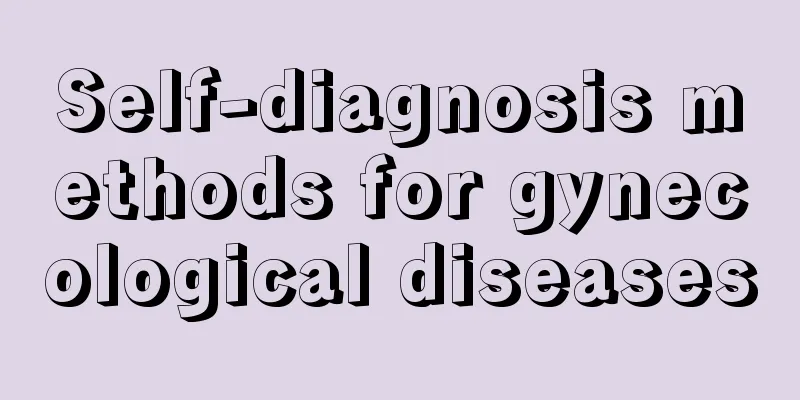Can age-related macular degeneration be cured? What treatments are available?

|
Author: Ma Zhizhong, Chief Physician, Peking University Third Hospital Reviewer: Tian Bei, Chief Physician, Beijing Tongren Hospital, Capital Medical University Age-related macular degeneration, also known as age-related macular degeneration, is the number one cause of vision loss in the elderly. Our country is gradually entering an aging society. Macular degeneration causes visual impairment in the elderly, causing them to lose their ability to live, and brings a burden to the entire society. So, is there any cure for age-related macular degeneration? 1. Can age-related macular degeneration be cured? Early detection and early treatment are the main measures for age-related macular degeneration, which are very important for controlling the progression of macular degeneration. Because macular degeneration will gradually worsen over time, if treatment measures are not taken in time, it may lead to severe vision loss or even blindness, which will eventually become irreversible. Figure 1 Original copyright image, no permission to reprint Age-related macular degeneration is divided into two types: dry and wet. Dry macular degeneration is like a dead volcano, but some of them will slowly grow new blood vessels, turning into wet macular degeneration, also known as neovascular or exudative macular degeneration. 90% of blinding age-related macular degeneration is caused by wet macular degeneration. Currently, there is no effective treatment for dry macular degeneration. Taking lutein can improve the lutein density in the macular area and prevent blue light damage; taking carotene can promote the regeneration of rhodopsin; antioxidants such as vitamins can help delay the progression of the disease; it is recommended to quit smoking and drinking, and control high blood pressure, hyperlipidemia and other risk factors; in addition, go to the outpatient clinic for regular check-ups to monitor whether the dry type of macular degeneration has turned into wet type. Wet macular degeneration develops and changes rapidly, with new blood vessels growing in the fundus, bleeding, exudation, edema, and organizational scarring in the macular area, leading to severe damage to central vision. There are many treatments for wet macular degeneration, but age-related macular degeneration is caused by macular degeneration, which is difficult to cure and will basically accompany you for life. The purpose of treatment is to delay the progression of the disease and try to maintain the existing vision. Some patients will improve significantly after treatment, and their vision will be improved to a certain extent. 2. What are the methods for treating age-related macular degeneration? The treatment method for age-related macular degeneration is mainly selected according to the different stages of the disease development. Currently, there are mainly the following methods. For wet macular degeneration with neovascularization as the main feature, the most effective treatment is to inject anti-angiogenic factor drugs, which act on the macular lesion area, reduce macular edema, promote the absorption of bleeding and exudation, inhibit the growth of choroidal neovascularization and vascular leakage, thereby avoiding further bleeding of the macula and achieving the purpose of improving vision. Intravitreal injection of anti-angiogenic factor drugs is currently the most mainstream clinical treatment method. At present, the drugs currently used in clinical practice in China include ranibizumab, conbercept, aflibercept, etc. In the future, more anti-angiogenic factor drugs will be launched. Figure 2 Original copyright image, no permission to reprint Laser therapy uses the heat energy generated by laser to destroy abnormal new blood vessels or diseased tissue in the macular area. The lesion needs to be far away from the fovea. Laser therapy can also stimulate the metabolism and renewal of damaged retinal pigment epithelium, thereby improving retinal function, inhibiting choroidal neovascularization, and improving vision. Photodynamic therapy involves injecting a specific photosensitizer into the blood vessels through a vein. The agent travels with the bloodstream to the abnormal new blood vessels and combines with the LDL in the abnormal new blood vessels. The agent is then irradiated with a special cold laser to activate the photosensitizer, destroying the abnormal new blood vessels, closing them, and reducing macular bleeding and exudation, thus achieving the therapeutic goal. Surgery is the only treatment option for advanced macular degeneration. The surgery mainly involves removing old lesions under the retina in the macular area and removing blood under the retina. Some literature shows that macular translocation and retinal pigment epithelial cell transplantation may be beneficial for repairing the missing tissue under the macula and restoring the function of the macula. In the future, technologies such as stem cell transplantation may bring hope of restoring vision to patients with advanced macular degeneration. |
<<: If you have vitiligo, you cannot eat foods containing vitamin C?
>>: Are blisters on the mouth caused by "getting angry"?
Recommend
Is it better to soak black wolfberry in water or wine? How to drink black wolfberry with American ginseng
Black wolfberry and red wolfberry are both wolfbe...
How long does it take for a cracked nipple to heal?
Nipple pain is common during breastfeeding. In mi...
What is the process of getting on the ring?
After giving birth, the most effective contracept...
Stroke: A battle against "sudden changes"
In the complex arena of the human body, the brain...
What are the benefits of eating sago for women?
Sago is a kind of rice with a milky white surface...
The digestive tract is "full of dangers". To save it, it depends on how you eat and drink every day.
Author: Cui Yihui, registered dietitian Reviewer:...
Summer without worries: A guide for kidney patients to stay cool in summer
1. Reasonable water supplementation: In summer, p...
Is quitting smoking suddenly harmful to your health? Is vaping healthy? 7 common rumors about smoking that have harmed many people
It has become a consensus that smoking is harmful...
Will drinking alcohol in the first month of pregnancy affect the fetus?
Will drinking in the first month of pregnancy aff...
Where is the best place for a woman to have a mole?
It is very common to have moles. Many people usua...
Teenagers who love sports: Scientific protection to protect the health of knee joints
Author: Yuan Feng, Chief Physician, Shanghai Sixt...
Why is there insufficient milk supply but milk is always leaking?
Because breast milk is now popular, everyone know...
Left side lower abdomen pain during pregnancy
Many women experience some physical discomfort wh...









